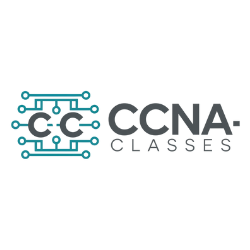Importance of CCNA Certification
If you’re considering a career in networking, obtaining a CCNA certification is crucial. As a certified professional, you’ll have the skills and knowledge necessary to excel in the IT industry. Let’s explore the key reasons why CCNA certification is so important:
1. Industry Recognition
CCNA certification is highly valued and recognized by both employers and industry professionals. It serves as proof that you have the expertise to successfully handle networking tasks and challenges. With the increasing demand for qualified network engineers, having a CCNA certification sets you apart from others and enhances your career prospects.
2. Enhanced Knowledge and Skills
Studying for the CCNA certification expands your knowledge and skills in various networking areas. From network fundamentals to routing and switching, you’ll gain a comprehensive understanding of networking technologies. This knowledge enables you to design, implement, and troubleshoot complex network solutions effectively.
3. Better Job Opportunities
A CCNA certification significantly improves your chances of landing a high-paying job. Employers value certified professionals, as they require less training and can contribute to the organization right away. Many companies specifically look for candidates with CCNA certification when hiring for networking roles. This certification demonstrates your commitment to learning and advancing your career in the IT industry.
4. Career Advancement
Once you earn your CCNA certification, you open doors to numerous career advancement opportunities. It serves as a stepping stone to higher-level certifications, such as CCNP and CCIE. These advanced certifications validate your expertise in specialized areas and lead to better job roles and higher salaries.
5. Stay Updated with Technology
The IT industry is constantly evolving, and it’s essential to stay updated with the latest advancements in networking technology. Pursuing a CCNA certification keeps you abreast of the latest trends, protocols, and best practices in the industry. This allows you to adapt to changing technologies and stay relevant in the fast-paced tech world.
In conclusion,
CCNA certification offers numerous benefits, including industry recognition, enhanced skills, better job opportunities, career advancement, and staying ahead of technology trends. By investing time and effort in obtaining this valuable certification, you set yourself up for success in the dynamic field of networking.
Understanding the CCNA Exam structure
As an expert blogger with years of experience in the networking industry, I’ve come across many aspiring professionals who are eager to pursue a CCNA certification. One of the first things that any CCNA candidate should do is gain a clear understanding of the exam structure. Here’s what you need to know:
1. Number and types of questions
The CCNA exam typically consists of 60-70 questions, which may vary depending on Cisco’s discretion. These questions can be a combination of multiple-choice, fill-in-the-blank, drag-and-drop, and simulation-based questions. It’s important to be prepared for different question formats to ensure success on exam day.
2. Time limit and passing score
The CCNA exam typically has a time limit of 90 minutes. This may seem like a short duration, but with proper preparation and time management, it can be enough to answer all the questions. In order to pass the exam, you need to achieve a minimum passing score, which is usually in the range of 800-850 out of 1000.
3. Exam topics
The exam is designed to test your knowledge and skills in various networking areas. The topics covered in the CCNA exam include:
- Network fundamentals
- Network access
- IP connectivity
- IP services
- Security fundamentals
- Automation and programmability
It’s crucial to have a solid grasp of each of these areas to perform well on the exam. Make sure to allocate enough study time to cover all the key topics comprehensively.
4. Certification validity
Once you successfully pass the CCNA exam and obtain the certification, it remains valid for a period of three years. To stay current and up-to-date with the latest networking technologies and best practices, you will need to recertify before the expiration date. This can be achieved by either passing the current CCNA exam or by completing certain Continuing Education activities.
By understanding the CCNA exam structure, you can approach your study plan with clarity and focus. Be sure to allocate adequate time for each exam topic and practice different question formats to maximize your chances of success. Remember, the CCNA certification is a stepping stone towards a rewarding career in networking, and with the right preparation, you’ll be on your way to achieving your goals.
Setting realistic study goals
When preparing for the CCNA exam, it’s important to set realistic study goals that align with your schedule and learning style. Here are some tips to help you set effective study goals:
- Break it down: Instead of overwhelming yourself with a massive study goal, break it down into smaller, manageable tasks. For example, aim to cover one chapter or topic per day or dedicate a specific amount of time each day to studying.
- Create a schedule: Plan your study sessions in advance and stick to a consistent schedule. This will help you stay organized and ensure that you allocate enough time for each topic. Consider studying during your most productive hours to maximize your concentration and retention.
- Set specific targets: Set specific targets for each study session, such as completing a certain number of practice questions or mastering a particular concept. This will keep you focused and motivated, as you’ll have a clear objective to work towards.
- Be realistic: Set goals that are realistic and achievable. Consider your other commitments, such as work or family responsibilities, and set study goals that are feasible within your available time and energy. It’s better to have smaller, attainable goals that you can consistently achieve rather than lofty goals that may lead to burnout.
- Track your progress: Keep track of your study progress to stay motivated and assess how well you’re retaining the information. Consider using a study planner or tracking app to monitor your daily or weekly achievements. Celebrate your milestones along the way to maintain a positive mindset.
Creating a study schedule
One of the most important aspects of preparing for the CCNA exam is creating a well-structured study schedule. A study schedule helps you stay organized and focused, ensuring that you cover all the necessary topics and have enough time to review them before the exam. Here are some tips to create an effective study schedule for CCNA success:
1. Assess your availability: Start by determining how much time you can realistically dedicate to studying each day. Consider your work schedule, personal commitments, and other responsibilities. Be honest with yourself about the time and energy you can devote to studying.
2. Break it down: Once you have an idea of your available study time, break down your study goals into smaller tasks. Instead of overwhelming yourself with trying to study everything at once, divide the topics into manageable chunks. This approach allows you to focus on one topic at a time and ensures you cover all the necessary material.
3. Create a schedule: Use a calendar or a planner to create a study schedule that includes specific time slots for studying each day. Block out dedicated study time and be consistent with it. Treat your study sessions as important appointments that cannot be missed.
4. Set specific targets: When setting study goals for each session, be specific about what you want to accomplish. For example, instead of saying “I will study for two hours,” set goals like “I will review subnetting for 30 minutes” or “I will complete practice questions on VLANs for one hour.” Specific targets keep you focused and help track your progress effectively.
5. Track your progress: Keep a record of the topics you have covered and mark your progress as you go along. This visual representation of your achievements can motivate you and give you a sense of accomplishment. It also helps identify areas that may need additional attention.
6. Be flexible: While having a study schedule is important, it’s also crucial to be flexible. Life happens, and unexpected things may pop up. If you miss a study session or fall behind schedule, don’t be too hard on yourself. Adjust your study plan accordingly and find ways to make up for lost time.
Effective Study Techniques
When preparing for the CCNA exam, it’s essential to have effective study techniques in place. Here are some strategies that have helped me succeed:
- Break down study goals: Instead of overwhelming yourself with a massive amount of material, break down your study goals into smaller, manageable tasks. This approach helps you stay focused and motivated throughout the study process.
- Create a study schedule: Set aside dedicated time for studying and create a study schedule that works for you. Having a structured plan will help you stay organized and ensure that you cover all the necessary topics before the exam.
- Set specific targets: For each study session, set specific targets of what you want to accomplish. Whether it’s completing a certain number of chapters, mastering specific concepts, or practicing sample questions, having concrete goals keeps you on track and provides a sense of accomplishment.
- Be realistic about time and energy: Recognize your limitations when it comes to time and energy. Don’t overload yourself with unrealistic study expectations. Set realistic study durations and be mindful of your energy levels to optimize your learning experience.
- Track your progress: Keep track of your progress as you study. This can be done through note-taking, creating flashcards, or using online study tools. Tracking your progress helps you identify areas where you need to focus more and ensures that you’re covering all the necessary information.
- Celebrate milestones: Celebrate your study milestones to stay motivated and maintain a positive mindset. Whether it’s completing a chapter or achieving a high score in a practice test, rewarding yourself along the way will make the studying process more enjoyable.
Remember, every individual has different study techniques that work best for them. Find what suits your learning style and adapt these strategies accordingly. By utilizing effective study techniques, you’ll be well on your way to CCNA success.
Now that we’ve discussed effective study techniques, let’s move on to the next section on exam practice.
Utilizing practice exams and quizzes
Preparing for the CCNA exam requires more than just studying the material. It’s important to gauge your understanding and identify areas that need improvement. One effective way to do this is by utilizing practice exams and quizzes.
Practice exams and quizzes mimic the format and structure of the actual CCNA exam, providing you with a realistic testing experience. These tools help you familiarize yourself with the types of questions you’ll encounter and the time constraints you’ll face. They also allow you to assess your knowledge and identify any gaps in your understanding.
When using practice exams and quizzes, here are a few tips to maximize their effectiveness:
- Simulate real exam conditions: Create a quiet and distraction-free environment to maximize concentration. Set a timer to complete the practice exam within the same time limit as the actual CCNA exam.
- Review your answers: After completing a practice exam or quiz, review your answers to identify any mistakes or areas where you struggled. Understand why you made those errors and take note of the concepts you need to revisit.
- Focus on weak areas: Use practice exams and quizzes as a tool for targeted study. If you consistently struggle with certain topics or types of questions, dedicate more time to studying those areas.
- Track your progress: Keep a record of your scores and track your improvement over time. This will give you a sense of accomplishment and motivation to continue studying.
- Vary your practice sources: Don’t rely solely on one source of practice exams or quizzes. Explore different resources, such as online platforms, study guides, or official Cisco materials, to expose yourself to a variety of question styles and difficulty levels.
Remember, the purpose of practicing exams and quizzes is not only to assess your knowledge but also to enhance your test-taking skills and build confidence. By incorporating this strategy into your study routine, you’ll be better equipped to tackle the CCNA exam and increase your chances of success.
So, start incorporating practice exams and quizzes into your CCNA study plan today, and watch your confidence grow as you become more familiar with the exam format and content.
Building a CCNA lab environment
When it comes to preparing for the CCNA exam, building a lab environment is a game-changer. Having hands-on experience with networking equipment and simulating real-world scenarios can greatly enhance your understanding and practical skills. Here are a few tips on building your own CCNA lab environment:
- Consider Your Budget: Building a physical lab with actual networking equipment can be expensive. However, there are alternative options available such as virtual labs and simulator software that can help you save costs. These tools provide a simulated environment where you can practice configuring routers, switches, and other networking devices.
- Choose the Right Equipment: If you decide to go with a physical lab, make sure to select the appropriate networking equipment. You’ll need routers, switches, and cables to set up a basic network. Look for models that are compatible with Cisco IOS so you can practice working on the same operating system that the CCNA exam uses.
- Create a Network Topology: Once you have your equipment, it’s time to design your network topology. Consider the exam topics and create scenarios that cover each of them. For example, you can set up VLANs, establish routing protocols, configure network security, and practice troubleshooting exercises. By creating a diverse network environment, you’ll be better prepared for the exam.
- Utilize Virtualization: Virtualization is a great option if you’re limited on space or budget. With virtualization software like Cisco Packet Tracer or GNS3, you can create virtual networks and practice configuring devices virtually. These tools provide a wide range of network devices and allow you to simulate complex network setups.
- Leverage Online Resources: There are numerous online resources available that provide pre-built lab scenarios and exercises. Websites, forums, and online communities have CCNA lab materials that you can use to supplement your study. Utilize these resources to practice different configurations, troubleshoot problems, and reinforce your understanding of networking concepts.
Joining study groups and online communities
One of the most effective study tips for CCNA success is to join study groups and online communities. Being part of a supportive network of like-minded individuals can greatly enhance your learning experience and increase your chances of success. Here are a few reasons why joining study groups and online communities is beneficial:
- Collaborative Learning: In a study group or online community, you can collaborate with others who are also preparing for the CCNA exam. By discussing concepts, sharing resources, and solving problems together, you can gain a deeper understanding of the material. This collaborative approach allows you to fill knowledge gaps and reinforce your learning through discussions and group activities.
- Motivation and Accountability: In a study group or online community, you’ll find a support system that keeps you motivated and holds you accountable. Seeing others striving for success can push you to work harder and stay committed to your study goals. Moreover, sharing your progress and challenges with others can help you stay on track and overcome obstacles along the way.
- Access to Resources and Study Materials: Study groups and online communities often provide a wealth of resources and study materials that can supplement your preparation. Members may share notes, practice exams, video tutorials, and other valuable resources that can further enhance your understanding of CCNA concepts. This access to a variety of materials can help you approach the exam from different perspectives and increase your chances of success.
- Networking Opportunities: Study groups and online communities provide a platform for networking with professionals in the field. Engaging in discussions and building relationships with like-minded individuals can open doors to job opportunities, mentorship, and industry insights. Networking with others who have already obtained their CCNA certification can provide valuable guidance and advice on career paths and industry trends.
To make the most of your study group or online community experience, it’s important to actively participate, contribute, and engage with others. Ask questions, share your knowledge, and be open to different perspectives. Remember that everyone has their own unique approach to learning, and by embracing diversity, you can enhance your own understanding.
By joining study groups and online communities, you can gain valuable insights, collaborate with others, access additional resources, and increase your motivation and accountability. So, take the initiative to find or create a study group or join an online community dedicated to CCNA preparation, and propel yourself towards CCNA success.
Seeking help from mentors or professionals
When it comes to studying for the CCNA certification, seeking help from mentors or professionals in the field can be a game-changer. Having someone with industry experience and expertise to guide you through your studies can provide valuable insight and support.
Here are some reasons why seeking help from mentors or professionals is essential for CCNA success:
- In-depth knowledge: Mentors and professionals have a wealth of knowledge and practical experience in networking. They can offer insights into real-world scenarios, industry trends, and best practices that may not be covered in the certification materials alone.
- Clarification of concepts: Sometimes, certain topics or concepts might be difficult to comprehend on your own. A mentor or professional can help break down complex ideas and explain them in a more understandable way. They can answer any questions you may have and provide examples to solidify your understanding.
- Career guidance: Connecting with mentors or professionals in the networking field can also offer valuable career guidance. They can share their own experiences, provide advice on job opportunities, and help you navigate the path to career success in the industry.
- Networking opportunities: Building relationships with mentors and professionals can open doors to potential networking opportunities. They may introduce you to other industry experts, invite you to workshops or conferences, or even recommend you for job opportunities. Networking is an invaluable asset in the tech industry and can significantly enhance your career prospects.
- Online communities: Joining online communities such as forums, social media groups, and discussion boards can connect you with like-minded individuals and professionals in the networking field. Active participation in these communities can help you identify potential mentors and seek their guidance.
- Networking events: Attend networking events, conferences, or meetups focused on networking and IT. These events attract industry professionals who are often willing to offer assistance and guidance to aspiring CCNA candidates.
- Reach out to local professionals: Research local networking professionals in your area and reach out to them. Email or LinkedIn messages can be a great way to introduce yourself and express your interest in seeking their guidance. Be respectful of their time and politely ask if they would be open to mentoring or advising you in your CCNA journey.
Staying motivated throughout the study journey
When it comes to studying for the CCNA exam, staying motivated throughout the entire journey is crucial for success. Here are some tips to help you stay motivated and focused:
- Set Clear Goals: Start by setting clear goals for your study journey. Having specific goals will give you something to work towards and keep you motivated.
- Break It Down: Breaking down your study goals into smaller, manageable tasks can make the process feel less overwhelming. By focusing on one task at a time, you can stay motivated by consistently achieving small wins.
- Create a Study Schedule: Having a study schedule will provide structure and help you stay on track. Allocate specific time slots for studying each day and stick to the schedule as much as possible.
- Reward Yourself: Celebrate your milestones along the way to maintain motivation. Reward yourself after completing a challenging chapter or reaching a specific study goal. It could be something as simple as taking a break, treating yourself to your favorite snack, or enjoying a leisure activity.
- Track Your Progress: Keep track of your progress to see how far you’ve come. This visual representation of your progress can be motivating, as you’ll be able to see the knowledge and skills you’ve gained throughout your study journey.
- Stay Positive: It’s normal to face challenges and setbacks during the study process. However, maintaining a positive mindset is key to staying motivated. Remind yourself of the end goal and focus on your achievements and strengths.
- Find Support: Surround yourself with a supportive network of individuals who are also studying for the CCNA exam. Join study groups or online communities where you can connect with fellow learners, share experiences, and motivate each other.
- Seek Help When Needed: Don’t hesitate to seek help when you encounter difficulties. Reach out to mentors, professionals, or even online forums for guidance and clarification. Remember, asking for help is a sign of strength and commitment to your success.
Staying motivated throughout your CCNA study journey may have its challenges, but by following these tips, you can maintain focus and determination to achieve your goal of obtaining the certification. Keep pushing forward, stay positive, and celebrate each milestone along the way.
Conclusion
Obtaining a CCNA certification is a crucial step towards a successful career in networking. It provides industry recognition, enhances knowledge and skills, opens up better job opportunities, and allows for career advancement. The certification demonstrates expertise in networking tasks and challenges, making it highly valued by employers and industry professionals. Additionally, it enables professionals to stay updated with technology and pursue higher-level certifications.
To succeed in the CCNA exam, it is important to understand its structure and set realistic study goals. Creating a well-structured study schedule, utilizing practice exams and quizzes, building a CCNA lab environment, and joining study groups and online communities are all effective strategies for achieving CCNA success. Staying motivated throughout the study journey is also essential, and it can be achieved by setting clear goals, tracking progress, finding support, and seeking help when needed.
By following these best study tips, individuals can confidently prepare for the CCNA exam and obtain the certification they desire. So, start implementing these strategies and embark on your journey towards CCNA success today!





